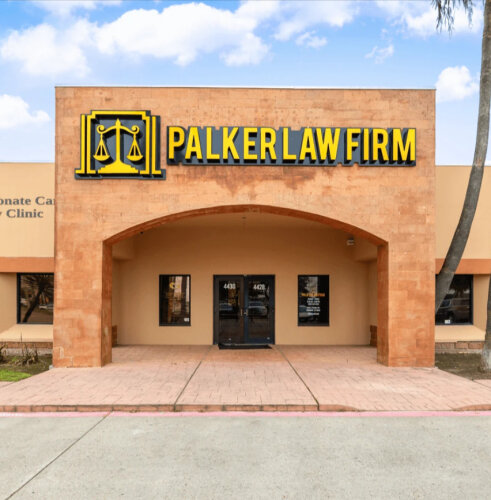Best Bad Faith Insurance Lawyers in Edinburg
Share your needs with us, get contacted by law firms.
Free. Takes 2 min.
List of the best lawyers in Edinburg, United States
About Bad Faith Insurance Law in Edinburg, United States
Bad-faith insurance law relates to conduct by an insurance company that violates its legal duty to its insured. In Edinburg, which is in Texas, these matters are governed by a mix of state statutory protections and court-made doctrines. Typical bad-faith scenarios include unreasonable denial of a valid claim, excessive delay in paying benefits, poor or dishonest investigation, misrepresentation of policy terms, and lowball settlement offers made without a reasonable basis. Remedies can include recovery of the underlying policy benefits, interest, attorney fees, and in some cases additional damages for the insurer's unfair practices.
Why You May Need a Lawyer
Insurance disputes can be complex. You may want to hire a lawyer if any of the following apply:
- Your claim was denied or only partially paid though you believe your loss is covered.
- The insurer delays investigating or paying your claim for an extended time without explanation.
- The company made a low settlement offer that does not reasonably cover your damages.
- The insurer misrepresented coverage, policy terms, or the scope of available benefits.
- You received threats of rescission, coverage cancellation, or claim subrogation without a solid legal basis.
- You are facing a third-party liability claim where the insurer refuses to defend or indemnify you under a reservation of rights.
- You believe the carrier acted in bad faith and you want to pursue additional damages, interest, or attorney fees.
A lawyer can evaluate your policy, collect and preserve evidence, prepare demands or complaints, negotiate with the carrier, and represent you in administrative proceedings or court. Many insurance attorneys handle cases on a contingency-fee basis - meaning you pay only if you recover.
Local Laws Overview
In Edinburg, Texas, bad-faith issues are primarily addressed under Texas law. Key points to understand include:
- Texas Insurance Code - The Texas Insurance Code contains provisions that prohibit unfair or deceptive acts and unfair settlement practices by insurers. These statutes provide a means to file complaints and in many cases to seek statutory remedies including damages, interest, and attorney fees.
- Prompt-payment rules - Texas has prompt-payment rules for certain types of claims. Insurers that unreasonably delay or refuse timely payment may face statutory penalties and interest obligations.
- Common-law claims - Texas courts have recognized extra-contractual remedies for insurers that act in bad faith in some situations. Depending on the facts, a claimant may be able to pursue tort remedies in addition to contractual recovery.
- Remedies and damages - Potential recoveries may include the policy benefits, pre-judgment and post-judgment interest, attorney fees, and in certain cases punitive or exemplary damages when the insurer's conduct is malicious or grossly negligent.
- Time limits - Deadlines for filing administrative complaints or civil lawsuits vary by cause of action. Statutes of limitation and required administrative steps can differ based on the type of claim and the relief sought. Acting promptly preserves options.
- Local courts and procedures - Insurance lawsuits in Edinburg will be handled in state district courts or other appropriate state tribunals. Small claims and certain limited disputes may go to county or justice courts. Procedural rules and filing requirements follow Texas state practice.
Frequently Asked Questions
What exactly is an insurance company acting in bad faith?
Bad-faith conduct generally means the insurer unreasonably denies, delays, or undervalues a claim, fails to properly investigate, misrepresents policy provisions, or otherwise handles a claim in a way that violates statutory rules or the insurer's duty to its insured. Whether conduct rises to bad faith depends on the facts and applicable law.
How do I know if my claim denial was unreasonable?
Look for signs such as denial without a meaningful investigation, ignoring key documents, relying on incorrect facts, failing to explain the denial, or applying an unreasonable interpretation of policy language. An attorney can review your file and the insurer's stated reasons to assess whether denial was reasonable.
Can I file a complaint with a government agency instead of suing?
Yes. You can file a complaint with the Texas Department of Insurance if you believe your insurer violated state insurance laws. The department investigates complaints and may help resolve disputes. Filing a complaint does not prevent you from pursuing private legal action, but administrative steps and deadlines can matter for some claims.
What kinds of damages can I recover in a bad-faith case?
Potential recoveries often include the unpaid policy benefits, interest, reasonable attorney fees, and in some cases additional or exemplary damages for particularly egregious conduct. Statutory remedies under Texas law can include penalties and fee-shifting in appropriate claims.
How long do I have to bring a bad-faith claim?
Time limits vary by claim type and jurisdiction. Some claims are subject to relatively short deadlines, while breach of contract actions often have longer statutes of limitation. Because these deadlines can bar your claim if missed, consult an attorney promptly to determine applicable time limits.
What evidence is most important to prove bad faith?
Useful evidence includes the insurance policy and declarations page, claim submissions and photos, all correspondence with the insurer, detailed notes of phone calls, written denials or offers, internal claim files if available, expert reports, and documentation of damages and expenses. Preserve everything and avoid deleting messages.
Will I have to go to court or can this be settled?
Many insurance disputes are resolved through negotiation, mediation, or arbitration. However, if the insurer will not offer a reasonable settlement, filing a lawsuit may be necessary. An attorney can advise on the best route based on the strengths of your case and your goals.
What does a bad-faith lawyer charge?
Many insurance lawyers handle first-party bad-faith cases on a contingency-fee basis - the lawyer is paid a percentage of the recovery. Others may use hourly billing or hybrid arrangements. Fee agreements should be explained in writing before you hire an attorney.
Should I speak to the insurer without a lawyer?
You should cooperate with reasonable requests for information, but avoid making statements that admit fault or accept early settlement offers without understanding your rights. If the dispute is substantial or complex, consult an attorney before signing releases or finalizing agreements.
Can the insurer cancel my policy if I complain or sue?
Insurers cannot lawfully cancel a policy for asserting a legitimate claim or exercising statutory rights. There are procedural rules an insurer must follow to cancel or nonrenew a policy. If you suspect retaliation, discuss options with counsel and consider filing a complaint with the Texas Department of Insurance.
Additional Resources
Below are organizations and resources that can help you learn more or take action:
- Texas Department of Insurance - state regulator that handles consumer complaints and provides information about insurance laws and complaint procedures.
- Hidalgo County courthouse and clerk - for information about local filings and local court rules in Edinburg.
- Hidalgo County Bar Association - a local group where you can find referrals to attorneys with insurance litigation experience.
- State Bar of Texas Lawyer Referral Service - assists in locating a licensed attorney for an initial consultation.
- Texas RioGrande Legal Aid and other legal-aid organizations - may provide assistance to eligible low-income residents for certain disputes.
- National Association of Insurance Commissioners - resource for consumer education about insurance practices and state regulator contacts.
- Consumer advocacy groups and local legal counseling centers - for help understanding rights and preparing questions for an attorney.
Next Steps
If you believe you have a bad-faith insurance claim in Edinburg, consider these practical next steps:
- Preserve evidence - keep your policy, claim forms, all letters and emails, photos, repair estimates, receipts, and a log of communications with the insurer.
- Document your losses - make a clear list of out-of-pocket expenses, lost income, and other damages related to the claim.
- Try an internal appeal - follow the insurer's internal appeal or dispute resolution process if available and do so in writing.
- File a complaint - consider filing a complaint with the Texas Department of Insurance if the insurer violated state rules.
- Consult a local attorney - get an early case evaluation from a lawyer experienced with insurance disputes. Ask about deadlines, likely remedies, fees, and strategy.
- Consider alternative dispute resolution - mediation or arbitration can be faster and less expensive than full litigation.
- Move promptly - statutes of limitation and other deadlines can be strict. Seeking advice early preserves your legal options.
Remember - this guide provides general information. For advice tailored to your situation, contact a licensed attorney in Edinburg or the surrounding area who can evaluate your policy, the facts, and applicable Texas law.
Lawzana helps you find the best lawyers and law firms in Edinburg through a curated and pre-screened list of qualified legal professionals. Our platform offers rankings and detailed profiles of attorneys and law firms, allowing you to compare based on practice areas, including Bad Faith Insurance, experience, and client feedback.
Each profile includes a description of the firm's areas of practice, client reviews, team members and partners, year of establishment, spoken languages, office locations, contact information, social media presence, and any published articles or resources. Most firms on our platform speak English and are experienced in both local and international legal matters.
Get a quote from top-rated law firms in Edinburg, United States — quickly, securely, and without unnecessary hassle.
Disclaimer:
The information provided on this page is for general informational purposes only and does not constitute legal advice. While we strive to ensure the accuracy and relevance of the content, legal information may change over time, and interpretations of the law can vary. You should always consult with a qualified legal professional for advice specific to your situation.
We disclaim all liability for actions taken or not taken based on the content of this page. If you believe any information is incorrect or outdated, please contact us, and we will review and update it where appropriate.









